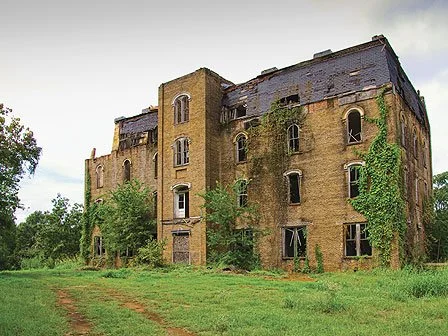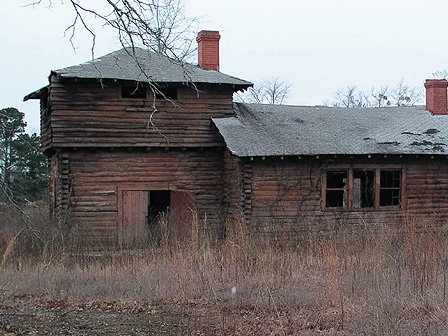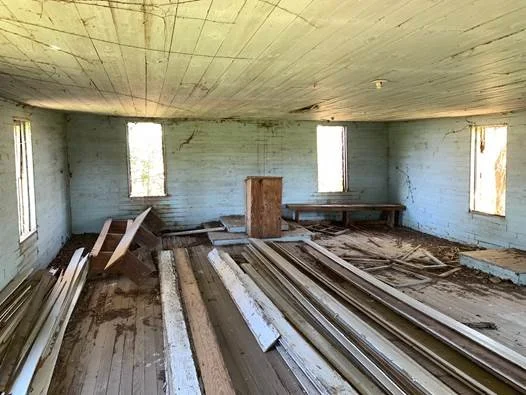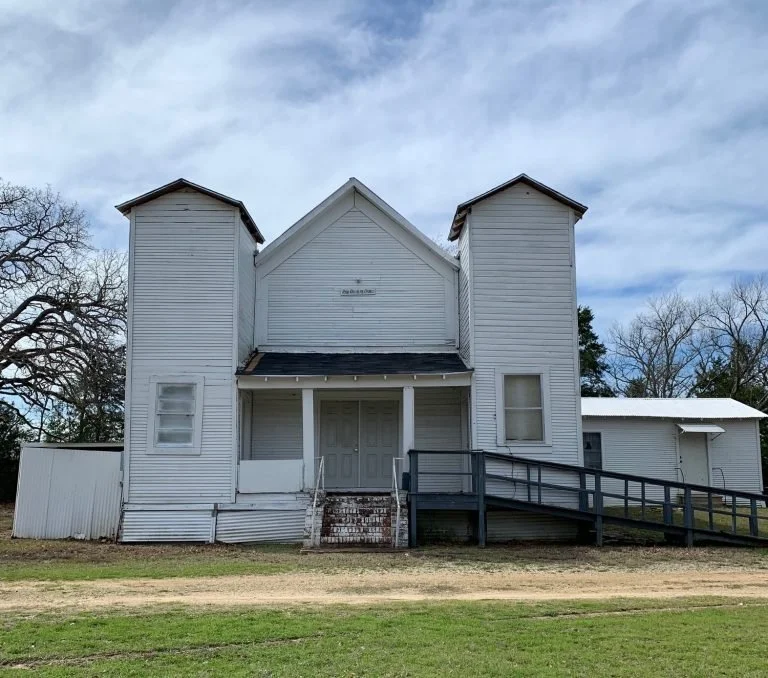PT Awarded Major $750,000 National Park Service Grant for its Rural Texas African-American Heritage Program
WASHINGTON – The National Park Service (NPS) has announced the award of $750,000 to Preservation Texas for its Texas Rural African-American Heritage Grants program. Preservation Texas is one of 11 recipients in 10 states to receive a share of $7.27 million in Paul Bruhn Historic Revitalization Grants to support the preservation of historic buildings in rural communities across the country. The Preservation Texas program will create the largest African-American-focused historic preservation grants program in Texas history.
Mary Allen Seminary in Crockett (Houston County), on the 2014 Preservation Texas Most Endangered Places list, is an example of a neglected rural African-American landmark associated with Reconstruction-era education.
“This National Park Service program not only supports historic preservation, but also fosters economic development in rural communities,” said NPS Deputy Director Shawn Benge. “By funding the rehabilitation of historic properties, rural areas across the country will be improved and strengthened.”
Sabine Farms, a site on the 2004 Most Endangered Places list, was built during the Depression in rural Harrison County to support Black farmers. Its surviving historic log structures are in disrepair.
“We have designed the Texas Rural African-American Heritage Grants program to support some of the most endangered buildings in our state,” said Preservation Texas Executive Director Evan Thompson. “This funding will be transformative, providing up to $75,000 per project to stabilize, rehabilitate, and restore at least ten endangered rural buildings associated with Black history, from the Civil War through the modern Civil Rights era.”
The NPS requires that preservation projects funded through this program be located in rural communities (places with a population of less than 50,000) and listed on the National Register of Historic Places by the time projects are completed (September 2024).
The Ethiopian Star Lodge in Dabney Hill (Burleson Co.) has been neglected for decades. It is an example of a rural African-American heritage site that can be reborn through preservation as a community gathering place.
“One of the desired outcomes of the program is to support rural economic development through historic preservation,” said Thompson. “These projects will also reinforce the significance of rural African-American history in Texas while nurturing rural heritage tourism, ensuring that important historic landmarks are protected for generations to come that can serve as outstanding examples of preservation.”
The program builds on Preservation Texas’s Most Endangered Places program, established in 2004, which has brought needed publicity and technical support for imperiled buildings. “We have found that in recent years, rural African-American heritage sites, such as schools, lodges, and churches, were most desperately in need of financial support and have been largely left neglected by traditional preservation programs,” said Thompson. “We want to be able to deliver the financial resources needed to save these imperiled places in rural Texas.”
Webb Chapel in rural Limestone County is one of dozens of rural African-American churches that would be eligible to apply for funding.
Preservation Texas will share more information about the program and how to apply for funding in the weeks ahead. The organization will continue to seek additional funds to expand the scope of the program, as well as volunteer and pro bono contributions from architects, engineers, historians, and contractors statewide. 100% of individual financial donations to the Texas Rural African-American Heritage Grants Fund will be granted to individual projects as part of this program.




